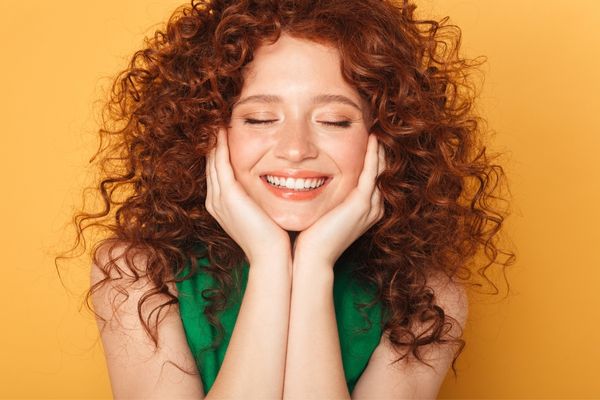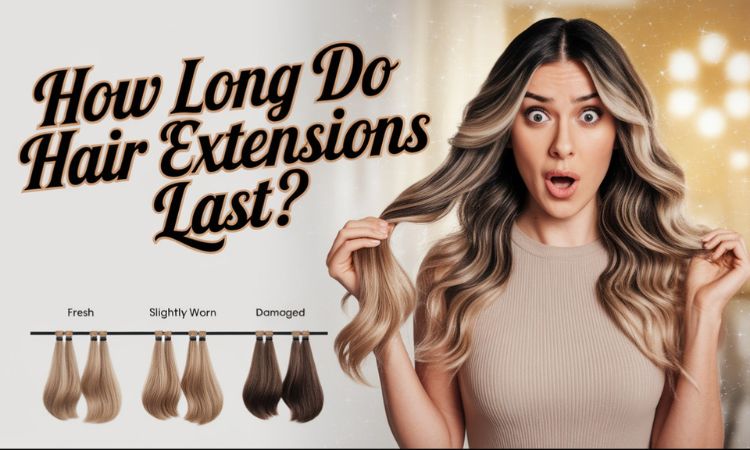Hair is more than just strands that grow from our scalps; it's a reflection of our identity, mood, and personality. The way we style, colour, and care for our hair can have a profound impact on how we feel and how others perceive us. In this in-depth exploration, we will delve into the intricate connection between hair and our emotions, uncovering the psychological and sociological aspects of this unique relationship.
The Psychological Connection
Your hair is an integral part of your self-expression. The act of styling your hair can be a daily ritual that sets the tone for your day. For example, choosing to wear your hair in loose waves might evoke a sense of casual elegance, while opting for a sleek, pulled-back look can make you feel more confident and professional. The simple act of changing your hairstyle can uplift your mood and boost your self-esteem. It's also important to remember that many American women frequently use hair extensions to boost their self-confidence.
Additionally, hair colour plays a significant role in how we perceive ourselves and how others perceive us. Bold, vibrant colours may convey a sense of adventure and fearlessness, while natural tones can represent stability and reliability. The psychology of hair color is a complex interplay between personal preferences and societal norms.
Hair and Societal Perception
Beyond individual psychology, hair also plays a crucial role in societal perception. It's no secret that our culture often associates certain hairstyles and hair colors with specific personality traits. For instance, long, flowing hair is often associated with femininity and sensuality, while short, edgy cuts can convey independence and non-conformity.

Likewise, hair color stereotypes persist. Blonde hair, for instance, is sometimes linked to innocence or even naivety, while darker hair colors may be perceived as more mysterious or intellectual. These societal associations can influence how we perceive ourselves and how others perceive us, ultimately affecting our behaviour and interactions.
Hair and Confidence
The state of our hair can significantly impact our confidence levels. A "good hair day" often translates to feeling more self-assured and ready to take on challenges. Conversely, a bad hair day can lead to self-doubt and heightened self-consciousness. The texture, shine, and manageability of our hair are all factors that contribute to how confident we feel.

The connection between the state of our hair and our confidence levels runs deeper than meets the eye. It's a relationship that many of us experience daily, and its influence can be remarkably profound. Let's unravel this intricate connection, examining how the condition of our hair shapes our confidence.
- The Power of a "Good Hair Day"
A "good hair day" is akin to discovering a newfound reservoir of self-assurance. Picture this: You wake up, glance in the mirror, and your hair falls perfectly into place. It's smooth, manageable, and radiates a healthy shine. In that moment, you're not just having a good hair day; you're stepping into a world where confidence flows effortlessly.
On these days, confidence permeates your very being. You walk taller, speak with assurance, and greet challenges with an unwavering resolve. It's as if your hair has become an emblem of your inner strength, a visual cue to the world that you are ready to seize the day.
- The Weight of a "Bad Hair Day"

Conversely, a "bad hair day" can cast a shadow on your confidence. Imagine waking up to unruly hair, perhaps frizzy, tangled, or uncooperative. As you grapple with your reflection, a sense of self-doubt creeps in. You might wonder if others are noticing your less-than-perfect mane, which can lead to heightened self-consciousness.
During such moments, it can feel like your hair is staging a rebellion against your confidence. It's a reminder that even seemingly trivial factors like texture, shine, and manageability play pivotal roles in how you perceive yourself. The frustration of trying to tame your hair can overshadow your self-assuredness.
The Texture, Shine, and Manageability Factors
Texture, shine, and manageability are the key players in this confidence symphony. Let's delve into each:
- Texture: The texture of your hair can dictate how you feel about yourself. Smooth, silky hair often elicits feelings of refinement and sophistication. Coarser textures may lend an air of strength and authenticity. Your personal preference and societal influences also factor in. Regardless, your hair's texture can be a source of identity and, in turn, confidence.
- Shine: Shine is more than just a visual aspect; it's a reflection of vitality. Hair that gleams with health signals to the world that you are thriving and vibrant. The mere sight of your radiant hair in the mirror can boost your spirits and reinforce your self-belief.
- Manageability: The ease with which you can style and manage your hair contributes significantly to your overall confidence. When your hair cooperates effortlessly, it's akin to a trusted ally that empowers you to face any situation head-on. Conversely, hair that resists styling can feel like an obstacle to confidence.
Hair Transformations

The act of changing one's hair can signify a fresh start or a desire for transformation. People often turn to hair makeovers during major life changes, such as breakups or career shifts. A new haircut or color can symbolize a willingness to embrace change and move forward. It's a way of taking control over one's appearance and, by extension, one's life.
Cultural and Historical Perspectives
The connection between hair and identity is not a recent phenomenon. Throughout history and across cultures, hair has held various symbolic meanings. In some Native American tribes, long hair symbolized wisdom and strength, while in ancient Egypt, short hair was associated with cleanliness and higher social status. These historical perspectives underscore the enduring significance of hair as a marker of identity.
The Role of Hair Care

The condition of our hair also influences our mood and personality. Well-maintained, healthy hair can boost self-esteem and make you feel more put-together. Regular hair care routines can be a form of self-care, providing relaxation and a sense of accomplishment.
Furthermore, hair care products often contain fragrances and textures that can evoke specific emotions. Using a calming lavender-scented shampoo, for example, can create a soothing and serene shower experience, impacting your overall sense of well-being.
Hair and Aging
As we age, our relationship with our hair can evolve. Graying hair, in particular, can be a source of contemplation and personal growth. Some individuals embrace their gray hair as a symbol of wisdom and experience, while others may choose to dye it to maintain a youthful appearance. How one chooses to approach the aging of their hair can reveal insights into their self-image and societal pressures.
Hair and Empowerment
For many people, hair can be a source of empowerment. Embracing natural textures and styles, such as curly or afro-textured hair, can be an act of self-acceptance and resistance against societal beauty standards. The natural hair movement has encouraged individuals to celebrate their unique hair textures and challenge conventional norms.
Hair has transcended its role as mere strands on our heads to become a symbol of empowerment for countless individuals. It's a canvas upon which we inscribe our identity, a means of self-expression, and a vehicle for resistance against societal beauty norms. Let's delve deeper into how hair, particularly natural textures and styles, has emerged as a potent source of empowerment.
For many, embracing their natural hair textures is an act of self-acceptance. Historically, societal beauty standards have often favored Eurocentric ideals of straight, sleek hair. This bias led to the widespread use of chemical straighteners and relaxers among individuals with naturally curly, coily, or afro-textured hair. However, a significant shift has occurred, giving rise to a movement that champions natural beauty in all its diversity.
The Natural Hair Movement
The natural hair movement emerged as a rallying cry for individuals to reclaim their natural hair textures and styles. It's a movement that celebrates the rich tapestry of curls, coils, kinks, and waves that adorn countless heads. The movement encourages people to break free from the constraints of conformity and embrace their unique hair as an integral part of their identity.
At its core, the natural hair movement challenges conventional norms of beauty. It defies the notion that straight hair is the epitome of attractiveness. Instead, it asserts that beauty is multifaceted and that every texture and style is worthy of celebration. This challenge to conventional norms is not just about hair; it's about redefining standards of beauty to be inclusive and reflective of the diverse world we live in.
For many individuals, transitioning to natural hair or maintaining their natural textures involves a profound journey of self-acceptance. It's a process of unlearning the biases and insecurities that society has ingrained over time. As they embrace their natural hair, they're also embracing themselves—flaws, quirks, and all.
The natural hair movement isn't just about appearances; it's about education and awareness. It fosters a deep understanding of hair health, care, and styling for different textures. Communities and online platforms have become hubs for sharing knowledge, tips, and experiences. This empowerment through education equips individuals with the confidence to navigate their natural hair journeys successfully.
Conclusion
The relationship between hair and our mood, personality, and identity is intricate and multi-faceted. From the way we style our hair to the societal perceptions associated with certain hairstyles and colors, hair plays a significant role in our lives. Recognizing the impact of hair on our emotions and self-perception allows us to harness its power for positive change, self-expression, and self-care. Understanding this complex connection enables us to embrace our hair as a valuable aspect of our identity and a canvas for self-discovery. Ultimately, the way we feel about our hair is a reflection of how we feel about ourselves, making it an essential element of our holistic well-being.




